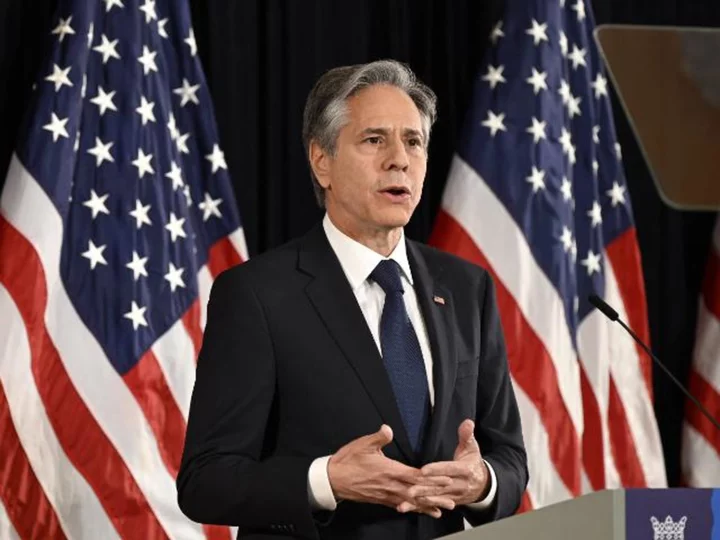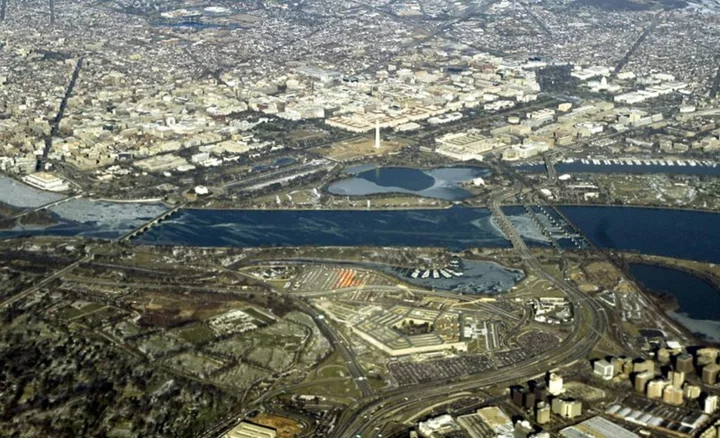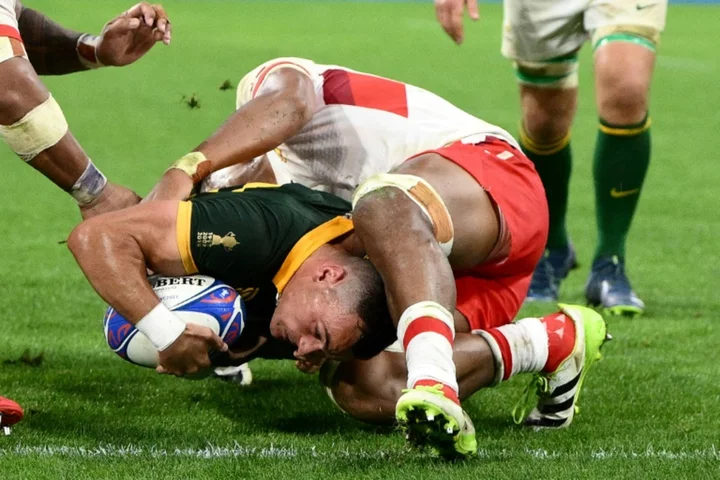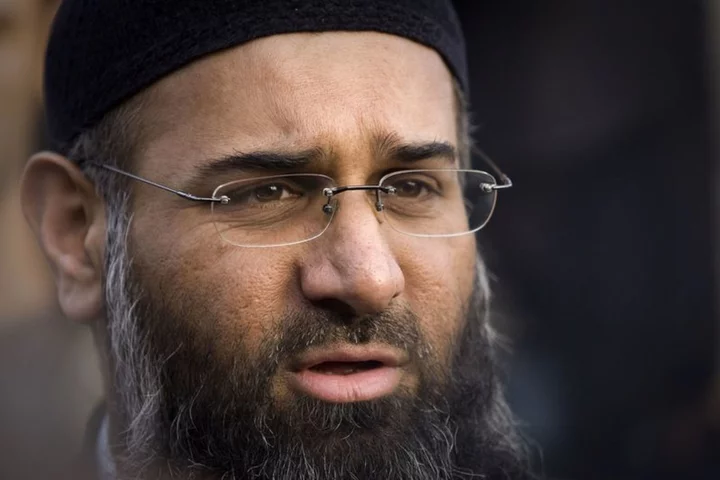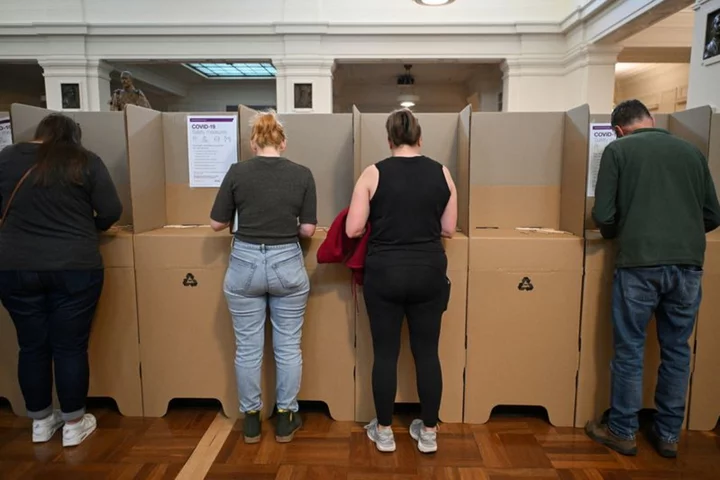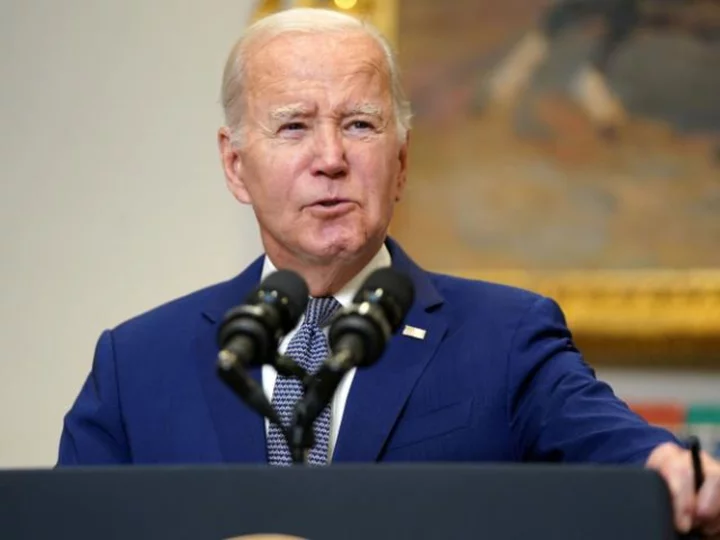As US Secretary of State Antony Blinken prepares for his long-delayed trip to China this weekend aimed at stabilizing tense relations between the world's two superpowers, the mood in Beijing is hardly welcoming.
Days before his departure, the top US diplomat received a stern rebuke from his Chinese host, who squarely blamed Washington for the recent spike in tensions after Blinken scrapped an earlier trip in February over a suspected Chinese spy balloon that flew over the US.
In a phone call with Blinken, China's Foreign Minister Qin Gang urged the US to "show respect" on Beijing's core concerns and stop interfering in its internal affairs, according to a Chinese readout.
That statement -- which was noticeably more prickly that the readout of the same call from the State Department -- speaks volumes of Beijing's low expectations for the high-stakes visit as well as the deep distrust that swirls over the Biden administration's push for a "thaw" in frosty relations, experts say.
Chinese state media has stayed largely muted in recent days for what will be the most senior visit by an American official in five years.
"The coverage of Blinken's visit in China is not nearly as extensive or enthusiastic as it has been in the West," said Yun Sun, director of the China Program at the Stimson Center, a think tank in Washington.
"After the earlier postponement due to the balloon incident, the Chinese are worried about another potential embarrassment. The expectations are low and carefully managed," she said.
Low expectations
While the US has been driving recent outreach, it has also played down expectations.
"We're not going to Beijing with the intent of having some sort of breakthrough or transformation in the way that we deal with one another," Daniel Kritenbrink, the State Department's top diplomat for East Asia, told reporters in a briefing Wednesday.
"We're coming to Beijing with a realistic, confident approach and a sincere desire to manage our competition in the most responsible way possible. We do hope at a minimum that we will achieve that goal," he said.
But even that will be a tall order given the deep suspicion in Beijing, due to a major breakdown of political trust between the two superpowers that began during the Trump administration.
"The dominant view in China is that the words and deeds of the US are inconsistent -- they don't do what they say," said Wang Yong, an international relations professor at Peking University in Beijing.
In recent months, while pushing to resume high-level diplomatic talks, the US has slapped sanctions on Chinese companies, pushed allies to restrict semiconductor tech experts to China, rallied other advanced economies to counter Beijing's "economic coercion," and signed a new trade deal with Taiwan -- a self-ruling democracy Beijing views as its own.
These actions have drawn the ire of Beijing, prompting it to question the "sincerity" of the Biden administration.
"The US side asks for communication on the one side, yet on the other, suppresses and contains China by every possible means," a Chinese Foreign Ministry spokesperson said last month, a day after US President Joe Biden predicted a "thaw" in relations.
"The mixed signals sent by the US side are very confusing. This makes the Chinese side have no particularly high hopes for Blinken's visit," Wang said.
Chinese experts say the key issues at the top of Beijing's agenda include Taiwan and US technology export controls, especially curbs on the supply of advanced semiconductors and chipmaking equipment to China.
Cold shoulder
At the heart of Beijing's complaint is its rejection of a central premise of the Biden administration's China strategy -- that the two superpowers can compete aggressively with each other while keeping communication lines open to avoid veering into conflict.
The result is a stark contrast in attitudes. While the US has appeared eager to repair ties, China has reacted passively and done little to hide its displeasure.
Tong Zhao, a senior fellow at the Carnegie Endowment for International Peace, said China was seeking to exert pressure by acting deliberately cold and distant to US outreach, including rejecting Washington's proposition to establish "guardrails" for the relationship and risk-reduction mechanisms.
China recently refused a US proposal for Defense Secretary Lloyd Austin to meet his Chinese counterpart Li Shangfu, questioning the "sincerity" of the invitation. (Chinese experts say it was because the US failed to lift sanctions on Li, imposed in 2018 over China's purchase of Russian weapons.)
China cut off talks with US military commanders following former US House Speaker Nancy Pelosi's visit to Taiwan last August. The lack of communication between the world's two most powerful militaries has fueled fears of miscalculation and conflict.
The two sides have seen multiple dangerous military interactions in recent months, including a near collision of warships in the Taiwan Strait and a close encounter of military jets over the South China Sea.
Zhao said China has adopted "a brinkmanship policy" to highlight the risk of military confrontation to the US.
"China has always believed that this risk is caused by the unilateral and unreasonable actions of the US. By making the risk more clear, China thinks it can push the US to recognize its own behavior problems and make unilateral compromises," Zhao said.
"To some extent, China is seeking to deliberately raise some risks at the tactical level, in the hope of forcing the US to make compromises in favor of China at the strategic level."
'Last chance'
Despite anger over what it sees as recent US efforts to contain China, Beijing has agreed to Blinken's rescheduled visit after a four-month delay.
Part of the reason is practical -- experts say the Blinken trip appears to be blocking visits by other US cabinet members that China deems important, including Treasury Secretary Janet Yellen and climate envoy John Kerry.
Beijing might also be concerned about the optics, especially for countries caught in the intensifying US-China rivalry.
"It is important for China not to appear to be the one rejecting dialogue, especially when the US has been pushing for it," said Sun at the Stimson Center.
But there is also a sense of necessity, given China's lackluster economic recovery since emerging from strict "zero-Covid" lockdowns late last year.
The disappointing economic data may have clouded China's optimistic view on the balance of power between it and the US, Zhao said. To maintain economic growth, it is all the more important for China to seek a stable relationship with the US, especially in trade, he added.
But none of these reasons is likely to change Chinese leader Xi Jinping's long-term strategic concerns about the US.
Countering the US has increasingly been a focal point in China's foreign and security policies, including efforts to weaken American influence in the developing world, Zhao said.
Last month, Xi delivered a blunt assessment of how he views the world, calling on his top national security officials to think about "worst case" scenarios and prepare for "stormy seas," amid a hardening effort to counter any perceived internal and external threats.
To some experts, these remarks are meant to prepare China for an eventual showdown with the US in the foreseeable future.
China is also very much aware the US is headed into a presidential election cycle, where hawkish rhetoric against Beijing may intensify further.
That means a clock is ticking.
Wang, the expert at Peking University, said Blinken's long-delayed visit is the "last chance" to repair ties with China before the US election next year.
"There is not much time left," he said. "The political polarization in the US is so severe that if it is delayed further, it will be very difficult for the Biden administration to find another suitable opportunity to improve relations in the remaining year."

